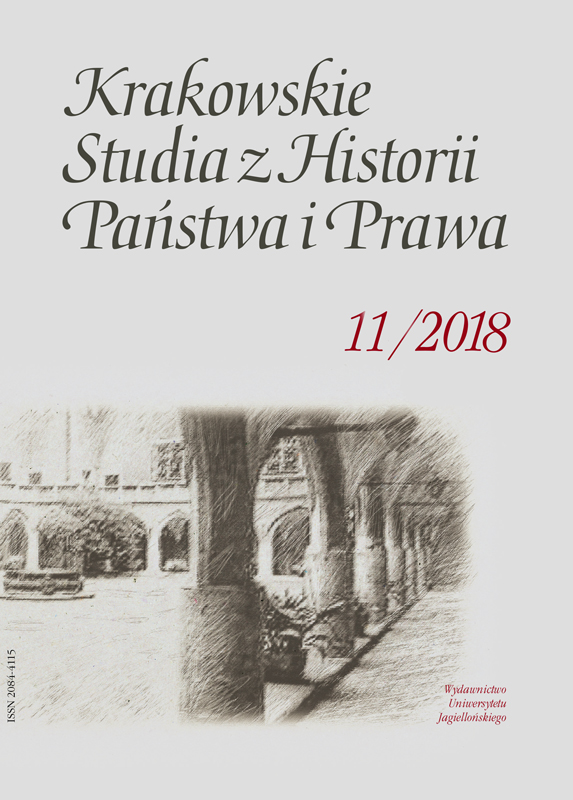I Advise War. I Advise Peace. Polemological Thought in Rhetorical Speeches of the Classical Period
I Advise War. I Advise Peace. Polemological Thought in Rhetorical Speeches of the Classical Period
Author(s): Marcin NiemczykSubject(s): Law, Constitution, Jurisprudence, Military history, Political history, Social history
Published by: Wydawnictwo Uniwersytetu Jagiellońskiego
Keywords: war; peace; rhetoric; polemology; rhetorical speeches
Summary/Abstract: Polemology, as a science of studying war, is in the interest of representatives of most fields and academic disciplines. In a special way, this kind of reflection should be sought at the very source of Europe’s culture, that is, in the political and legal thought of Ancient Greece. In turn, part of this research should be the study of rhetorical speeches of the classical period, whose goal was to create incentives to war, or which, on the contrary, advised making peace.Given the above, the aim of this article is to attempt to look at the war rhetoric as an issue at the crossroads between different disciplines. The incentive for such an approach is given by the so-called counselling speeches about war and peace by such speakers as, for example, Lisias, Aeschines, Isocrates, Cleon, Diodotus, Andocides, and Demosthenes. It is also worth noting that funeral speeches by such eminent personages as Gorgias, Lisias, Plato, Demosthenes, Pericles, and Hyperides also constituted part of the war rhetoric of Ancient Greece. These speeches are not only a manifestation of rhetorical art, but as they refer to such ideas as freedom, democracy, Panhellenism, or just war, they become a valuable source material for scholars dealing with rhetoric, as well as for historians of political and legal doctrines.Given the above, the author’s intention is to show manifestations of polemological thought in the rhetorical speeches of the classical period (mainly in the political exciters) and to verify the hypothesis about the existence of common research areas for students of rhetoric and political and legal doctrines. In the professional literature there are clear deficiencies in such an approach. This article is therefore also trying to encourage an increased interest in research on war and the rhetoric of war, in particular through the prism of the history of political and legal doctrines.
Journal: Krakowskie Studia z Historii Państwa i Prawa
- Issue Year: 11/2018
- Issue No: 3
- Page Range: 393-411
- Page Count: 19
- Language: English

